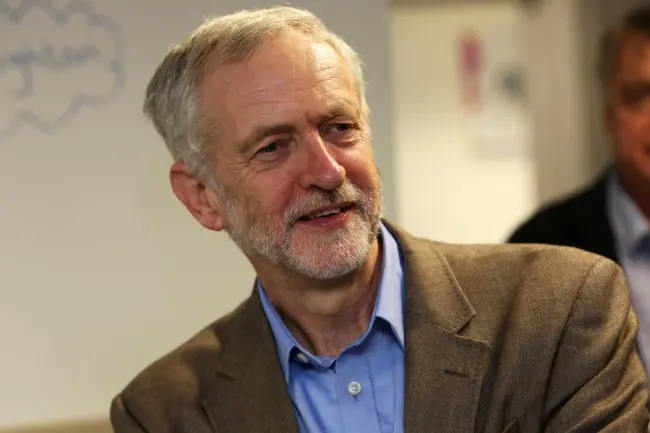Labour leader tells business leaders it was ‘extractive’ banks that drove the economy to the ‘point of collapse’ in 2007 as reports from The Guardian state.
Jeremy Corbyn is to accuse City firms of treating ordinary workers like a “cash cow” as he calls for more state investment.
In a speech to business bosses, the Labour leader will say it was the “extractive” banking industry rather than the government that drove the economy to the “point of collapse” in 2007.
He will demand fundamental reforms to ensure the big banks “serve the economy not just themselves” and more public-backed spending on infrastructure projects and science.
“What Labour now stands for is far more than stopping the damage being done by this government and its threat to our long-term economic future,” Corbyn will tell the British Chambers of Commerce conference in London.
“We want to see a break with the failed economic orthodoxy that has gripped the establishment in this country for a generation.
“We will put public investment in science, technology and the green industries of the future front and centre stage. Only by driving up the rate of investment will we achieve the higher productivity we need for rising living standards for all.”
Corbyn will urge a “genuinely mixed economy” based on a “new settlement with the corporate sector”.
“Only an economy that is run for the wealth creators – the technicians, entrepreneurs, designers, shop-floor workers, and the self-employed – and puts them in the driving seat … is going to deliver prosperity for all,” he will say.
Corbyn will accuse chancellor George Osborne of believing that the solution to the UK’s problems is “to cut back government”.
“But it wasn’t government that was the problem in 2007 and 2008, when the banking sector nearly drove the entire economy to the point of collapse,” he will add.
“The New Labour approach was to opt for ‘light touch regulation’ of finance – and then sit back and collect the tax revenues.
“But you cannot base a decent social policy on an unsustainable economic policy. And we cannot outsource economic policy to the City of London. That has not served our economy well, and it has not served business well.
“The banking sector has to be reformed. Finance must support the economy, not be an end in itself, and certainly not an extractive industry that looks at consumers, entrepreneurs and small businesses as a cash cow.
“We need a new ecology of finance. That means encouraging credit unions and better small business support.
“We need a national investment bank to target fund investment on what is in the public wage and wider economic interest, not just in the interests of quick returns.
“And we need to reform the major banks so that they serve the economy not just themselves. That includes using the public stakes in banks such as RBS to drive lending and investment in infrastructure, rebuilding supply chains and the industries of the future.”
Corbyn will reiterate his commitment to investing in super-fast broadband – pointing out that Chile, Estonia and Iceland currently have higher percentages of premises on the fibre-optic network.
“The evidence is clear that only the public sector and public investment can guarantee the super-fast broadband network in every part of Britain, the essential low-cost connections people and businesses need in a 21st century economy,” he will say.
“As it is, government foot-dragging and ideological dithering is holding digital Britain back.”


